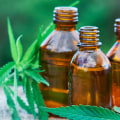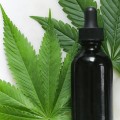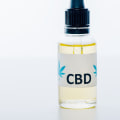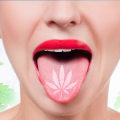Cannabidiol (CBD) is a compound found in marijuana that is not harmful and does not cause a “high”. Hemp, which is any part of the cannabis sativa plant with no more than 0.3% tetrahydrocannabinol (THC), is also a source of CBD. The Food and Drug Administration (FDA) has approved one cannabis-derived drug and three cannabis-related drugs, all of which require a prescription from a licensed healthcare provider. Epidiolex, a drug containing purified CBD from hemp, was approved by the FDA to help treat rare seizure disorders.
However, other marketed products and uses of CBD may not be approved by the FDA. The potential health effects of using CBD products during pregnancy are currently unknown, and the use of CBD during pregnancy is not recommended. In animals, high doses of CBD have caused negative effects on developing fetuses. We don't know if CBD is transmitted to the baby through breast milk, so people who are breastfeeding are advised to avoid CBD.
We also don't know the effects of CBD on children's developing brains, so it's important to store products that contain CBD or THC in child-proof containers and out of the reach of children. Currently, we don't know how CBD consumption affects a person over time or the different ways of using CBD (smoking, vaping, eating, applying it to the skin, etc.). Many companies that sell hemp and CBD products also sell products that contain THC, so people should be careful not to confuse THC products with hemp or CBD products. Products containing THC can cause psychoactive effects and adverse events. In addition, most CBD products are not regulated by the FDA.
Therefore, consumers should keep in mind that products labeled as hemp or CBD may contain other ingredients, such as THC, pesticides, heavy metals, bacteria or fungi. If consumers experience adverse effects from products containing THC or CBD that pose an immediate health hazard, they should call the local or regional poison control center at 1-800-222-1222 or 911 or seek medical attention at the local emergency room and inform healthcare providers about the ingredients of the products they have consumed. Meanwhile, companies that market cosmetics containing hemp-derived CBD to consumers should exercise caution and continue to ensure that both the CBD and the final product containing CBD comply with all applicable federal, state, and local regulatory requirements. The FDA has collected more information about the safety profile of these products through sampling and testing of marketed CBD products. As demonstrated by the three examples provided above, state regulation does not always fit perfectly with existing federal regulation on CBD, creating substantial confusion and a rapidly changing market landscape. It is therefore not surprising that the number of CBD-containing products that appear on store shelves has increased rapidly, presenting both opportunities and risks. We still don't have clear answers to important questions such as what adverse reactions may be associated with CBD products and what risks are associated with long-term use of CBD products. We believe that small, specific projects that improve short-term data methods and point to future opportunities to collect and analyze data on CBD products and, possibly, on other types of products in the future.





